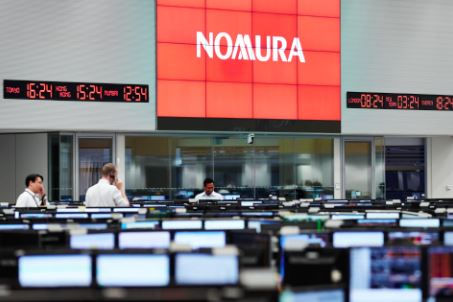How would the Trump administration's 26% reciprocal tariff on India affect the Indian stock market?
- Money Bhai

- Apr 3, 2025
- 2 min read
Over 180 countries will be subject to reciprocal tariffs proposed by President Trump, including a 26% tariff on India. The market responded badly, and industries like IT and autos were predicted to be under pressure.
On April 2, US President Donald Trump declared broad retaliatory tariffs on the world's biggest economy's trading partners.
Trump announced increased tariff rates for more than 180 countries on "Liberation Day," with no country-specific exceptions. Trump also declared that a 10% baseline tariff would be imposed in addition to country-specific levies.
He did, however, slap reciprocal taxes on US goods at a rate that is barely half that of other nations. Nevertheless, this was plenty to cause market trepidation, as the tariff announcement caused Dow Jones Futures to fall more than 1.5%.
He said that India will be subject to a reciprocal tariff of 26%, which is half of what India charges on US imports. Additionally, car stocks like Tata Motors and Samvardhana Motherson are anticipated to be impacted by Trump's announcement of a 25% duty on automobile imports into the US.
The 1.5% decline in the Gift Nifty indicates that Trump's tariffs may cause an instantaneous negative response.
Although there may be selling pressure on industries like IT and autos, the market will probably be able to handle the effects in the medium to long run.
The home market is reassured by the fact that experts note that Trump's tariff might not have a major detrimental effect on the economy.
India and the US have a negligible trade surplus. The India Brand Equity Foundation (IBEF) reports that India's trade surplus with the United States in FY24 was $36.8 billion. In FY24, US exports to India totaled $40.7 billion, while Indian exports to the US totaled $77.5 billion.
Experts estimate that just 1.1% of India's GDP comes from exports from its most vulnerable industries.
Trump's announcement of reciprocal tariffs that are just half as steep as those imposed by other nations on US goods has drawn attention from certain analysts. Instead of vengeance, this has created space for talks.
"When compared to tariffs on other nations like China, Taiwan, Sri Lanka, and Bangladesh, the 26% levy on India is not exorbitant. The market will probably react badly. Tariffs will probably decrease as a result of a potential bilateral trade agreement between the US and India, according to VK Vijayakumar, Chief Investment Strategist at Geojit Investments Limited.
Only industries with significant exposure to US markets may be impacted by Trump's tariffs, not Indian companies in general.
Electronics account up 15.6% of India's overall exports to the United States, followed by diamonds and jewelry (11.5%), pharmaceutical products (11%), nuclear reactor machinery (8.1%), and refined petroleum products (5.5%), according to brokerage firm Motilal Oswal.
"Amit Sarkar, Partner, Bhuta Shah and Co LLP, stated that although Trump's reciprocal tariffs are somewhat upsetting to India Inc., the impact is still more sectoral than overall for Indian businesses."








Comments